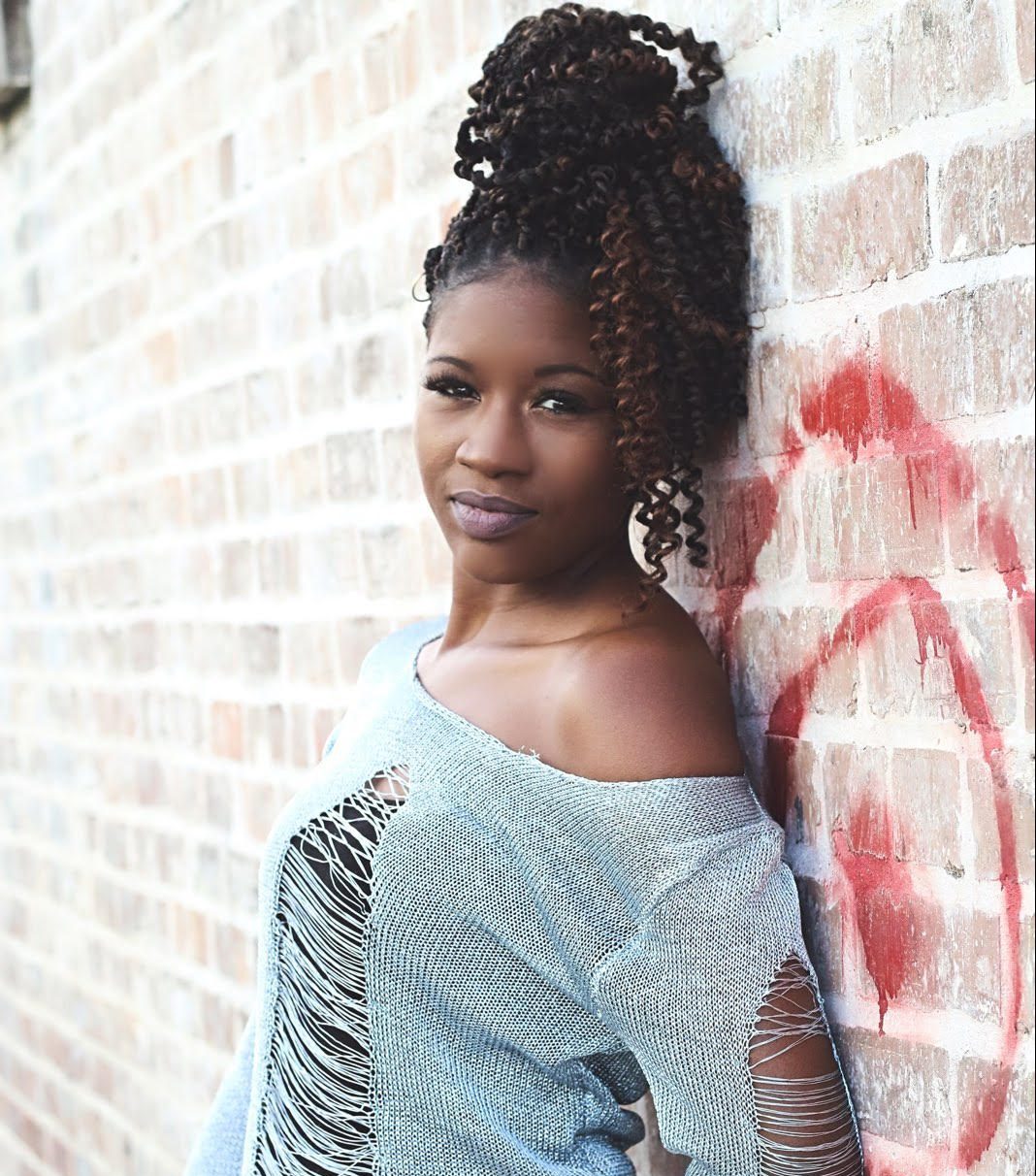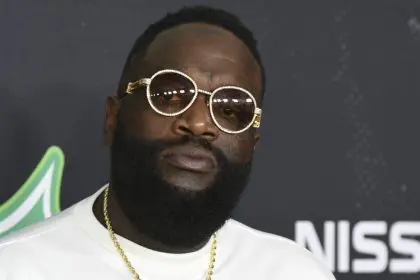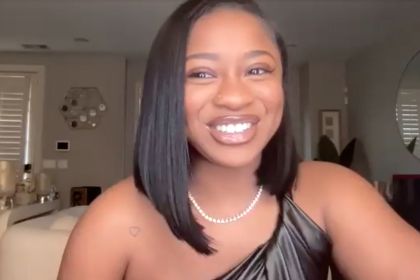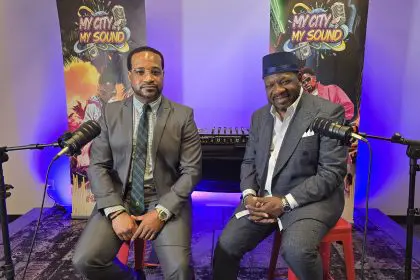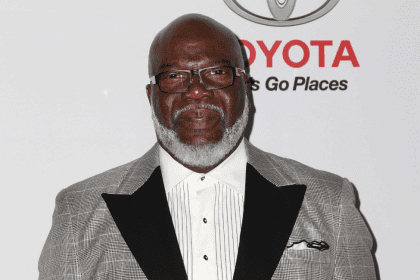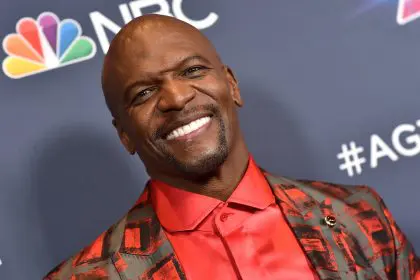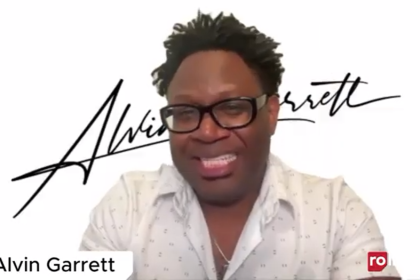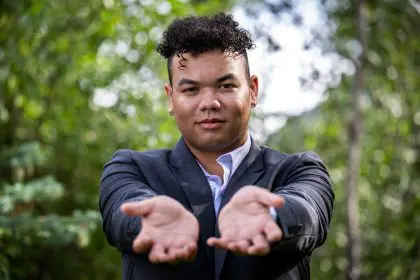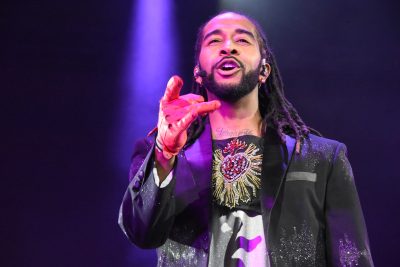
Where are you from?
I was born in Savannah, Georgia, and raised in a little town near Brunswick in Wayne County called Jesup.
How were you exposed to blues?
I come from a musical family. It’s my heritage. One of my aunts was a gospel and classical music performer, one of my uncles was a blues guitarist and my father was an educator. He was also a part time promoter and booking agent for several R&B bands in South, Georgia. He traveled a lot and we would listen in the evenings to WLAC AM back when it had one of the strongest radio signals in the country. As a kid, I would stay up late at night and listen to Bobby “Blue” Bland, Little Milton, B.B. King and many others. Between WLAC, my dad’s music collection and his music ventures, that’s how I got initially exposed to the blues.
Why do you call your band Frankie’s Blues Mission?
Because that’s exactly what it is. My mission with the group is, for starters, to actually celebrate African American culture in a way that hasn’t been done in quite some time. The band performs blues and roots-based music as well as jazz, true R&B and even touches on New Orleans and Creole-based music. The Blues is the foundation of African-American cultural expression and as such, in my opinion, is the foundation for American cultural expression. In a time of growing polarization in America, this music needs to be heard and experienced more now than ever.
What instruments do you play?
I play guitar and sing.
How long have you been playing the blues?
Since I was in my twenties, about 30 years ago.
Why did you choose this genre?
Well, actually, it feels like this genre chose me, sometimes. I was just drawn to it after seeing B.B. King perform at the Great Southeast Music Hall back in 1976. He was such a charismatic and soulful guitarist. He “spoke” to me with a few notes what it would take others dozens of notes to “say.”
How would you describe your playing style?
I would describe my style as primarily modern electric urban blues.
Who are your three musical inspirations and why?
T-Bone Walker, because he’s where modern electric blues begins.B.B. King, because he inspired a shy teenager (namely me) to go against type and become a blues guitarist. Roy Lee Johnson, because he became a mentor (by way of Georgia’s Council for the Arts) to a “grown up” musician and showed him that he still had a lot to learn. I give an honorable mention and nod to Magic Sam, because he was the embodiment of pure soul and expression.
If you could perform with any musical artist of the past and the present, who would it be?
I would love to have performed with B.B. King, for obvious reasons.
Blues is the father of modern R&B, but it’s the daddy that no one talks about. Why do you think that is the situation?
Well, there’s no one answer to that one. To me, it’s a complicated mix of America’s reluctance to bother with anything perceived as “old”, or African-Americans’ psychological need to escape their past, or the tendency of Black culture to innovate, discard and then swiftly move on to the next innovation. Based on purely anecdotal evidence, here’s what I see: The Blues has a bit of an image problem. Blues is no longer heard on the radio in the way that it was when I was growing up. When the Blues is presented in the media, it’s in movies like “The Blues Brothers”, where it’s cultural power and scope is reduced to a vehicle for a joke or it’s sampled to pieces in Rap records.
The second generations of Blues innovators, artists such as Buddy Guy, Kenny Neal, or my mentor Roy Lee Johnson are in their 70s or 80s now. The primary target audience for modern popular music is ages 18 to 35. Maybe the target audience just doesn’t warm up to performers that could be their parents or grandparents. There are fewer and fewer music programs in public schools and as a result, fewer and fewer young people gain an appreciation for various genres of music, short of what they hear on the radio. Media airplay is becoming ever more restrictive in the variety of music that gets aired because the airwaves are becoming an ever more highly competitive market. The internet has made more music more available to more people than ever before, but still its radio airplay that first introduces young people to music. When all you’re exposed to is what you hear on your local FM stations, your appreciation for under exposed genres like blues, jazz, classical or roots music is simply not there, or diminished, at best.
Now that BB King has died, what other blues artists should be recognized for his/her work and why?
There’s a new kid on the block, Jarekus Singleton out of Chicago, that’s making his debut. He’s carrying on the tradition. Cedric Burnside, son of R.L. Burnside, comes to mind. There are a number of local Atlanta artists such as Sammy Blue and Jontavious Willis, Shelton Powe, Ron Cooley, who are also carrying on the tradition.

